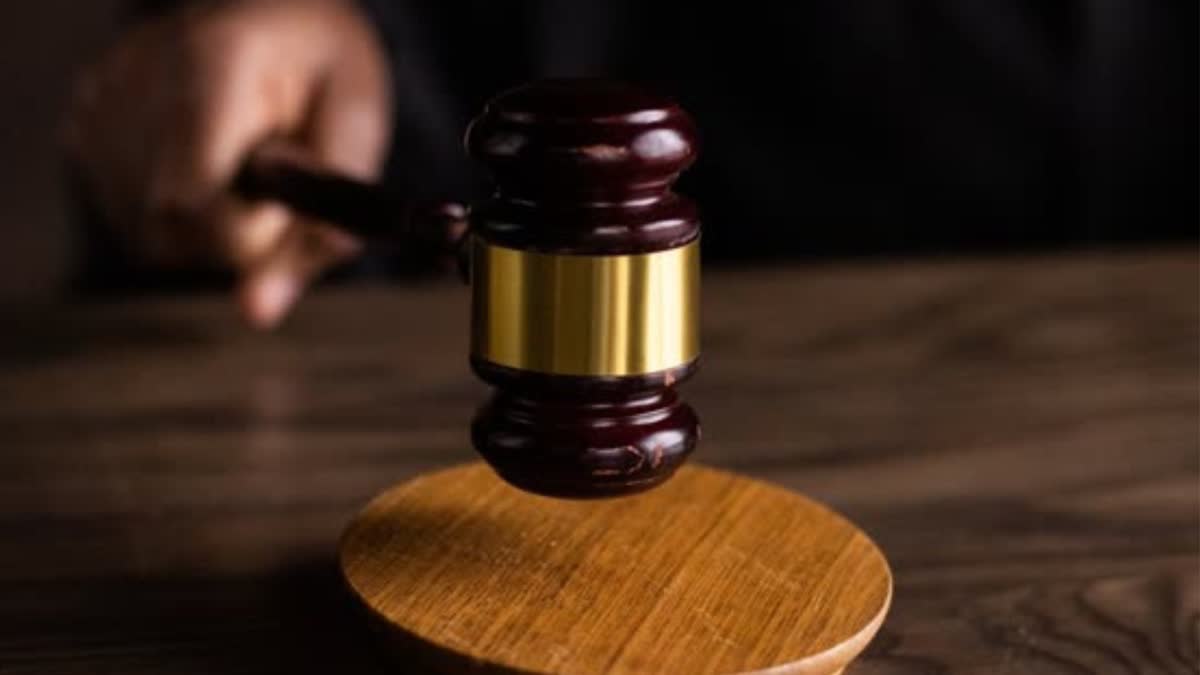New Delhi: The Supreme Court on Wednesday said the "brusque approach" of the Karnataka High Court resulted in conviction of two people in a 2005 murder case and it also failed to record clear findings in relation to the charge of criminal conspiracy.
A bench comprising justices Sanjay Kumar and Aravind Kumar, setting aside the conviction of two petitioners in the murder case, said: “the brusque approach of the High Court in dealing with the appeal, resulting in the conviction of Appellant Nos. 1 and 2, reversing the cogent and well-considered judgment of acquittal by the trial court giving them the benefit of doubt, cannot be sustained”.
The bench said once the trial court found no evidence to convict the accused, the burden was upon the high court, while reversing the trial court’s judgment, to record clear findings in relation to each of the charges and, more particularly, the charge of criminal conspiracy under Section 120B IPC. “However, no such exercise was undertaken by the high court”, said Justice Kumar, who authored the judgment on behalf of the bench, adding that the trial court had earlier delivered a "well-considered judgment" acquitting the accused in the case.
The bench relied on the observation, made in Rajendra Prasad v. State of Bihar (1977), that in an appeal against acquittal, it would not be legally sufficient for the high court to take a contrary view about the credibility of witnesses and it is absolutely imperative that the high court convincingly finds it well-nigh impossible for the trial court to reject their testimony.
The apex court’s judgment came on an appeal challenging the high court's verdict which reversed petitioners’ acquittal and held the two persons' guilty of offences including that of murder and criminal conspiracy.
The apex court noted that the two accused, along with three others, were acquitted in May 2006, by a trial court and after that the state government filed an appeal before the high court.
The prosecution claimed that a conspiracy was hatched by five accused to murder a person and they attacked him in February 2005 near a bus stand in Bangalore rural district. The victim succumbed to his injuries.
The apex court said the trial court took note of the discrepancies and contradictions in the depositions of some witnesses in the case and held that the prosecution had failed to prove the guilt of the accused beyond reasonable doubt.
“However, in appeal, the High Court merely summed up the depositions of the so-called eyewitnesses and baldly concluded that the presence of the eyewitnesses, PWs (prosecution witnesses) 1 to 3, could not be doubted. Surprisingly, despite the Trial Court detailing, at great length, the contradictions and discrepancies in their depositions, the High Court observed that the Trial Court had not pointed out any major contradictions which would discredit the evidence of PWs 1 to 3 and the evidence of other witnesses”, said the apex court.
The apex court said according to the high court, the evidence adduced by the prosecution outweighed the findings recorded by the trial court, but no reasons worth the name were recorded by the high court to support this conclusion. “On the strength of these cryptic observations, the high court deemed it fit to reverse the judgment of acquittal; hold the accused guilty of the offences as charged and sentence them to imprisonment for life”, said the apex court.
The apex court said: “The appeal is accordingly allowed, setting aside the conviction of Appellant Nos. 1 and 2 on all charges. The judgment dated March 29, 2012, passed by the High Court of Karnataka at Bangalore….. is set aside to that extent. Bail bonds and sureties furnished by and on behalf of appellant Nos.1( Ramesh) and 2 (Kumara) shall stand discharged”.



